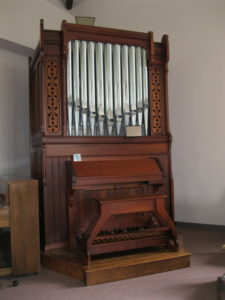NOONTIME LENTEN ORGAN RECITAL – Wednesday, April 5, 12:15-12:45 p.m.
Five students from the Luther College Organ Studio will perform a program that includes works of Dieterich Buxtehude, Michel Corrette, Cesar Franck, and Jacques-Nicolas Lemmens. This is the last in this year’s series of organ recitals.






